慕尼黑啤酒节介绍英文版PPT课件
- 格式:ppt
- 大小:9.52 MB
- 文档页数:14
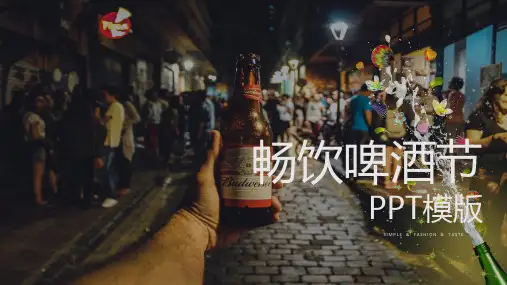

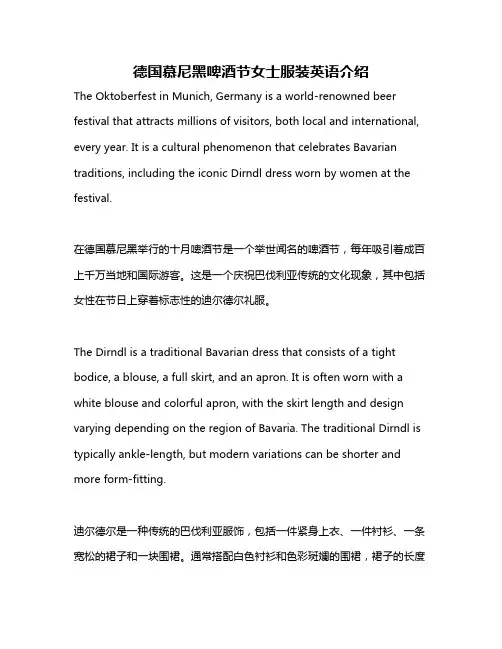
德国慕尼黑啤酒节女士服装英语介绍The Oktoberfest in Munich, Germany is a world-renowned beer festival that attracts millions of visitors, both local and international, every year. It is a cultural phenomenon that celebrates Bavarian traditions, including the iconic Dirndl dress worn by women at the festival.在德国慕尼黑举行的十月啤酒节是一个举世闻名的啤酒节,每年吸引着成百上千万当地和国际游客。
这是一个庆祝巴伐利亚传统的文化现象,其中包括女性在节日上穿着标志性的迪尔德尔礼服。
The Dirndl is a traditional Bavarian dress that consists of a tight bodice, a blouse, a full skirt, and an apron. It is often worn with a white blouse and colorful apron, with the skirt length and design varying depending on the region of Bavaria. The traditional Dirndl is typically ankle-length, but modern variations can be shorter and more form-fitting.迪尔德尔是一种传统的巴伐利亚服饰,包括一件紧身上衣、一件衬衫、一条宽松的裙子和一块围裙。
通常搭配白色衬衫和色彩斑斓的围裙,裙子的长度和设计根据巴伐利亚的地区变化。
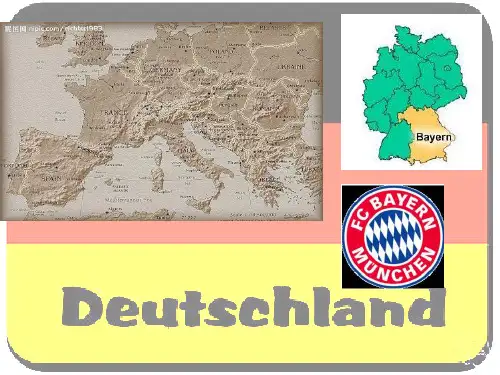
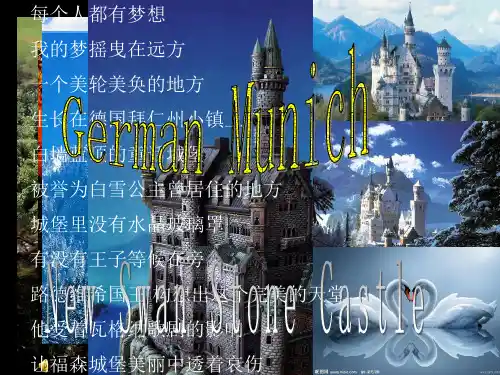

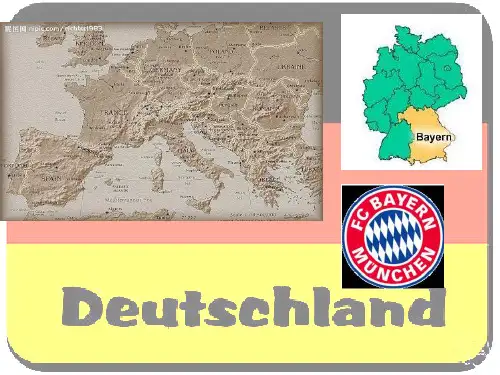
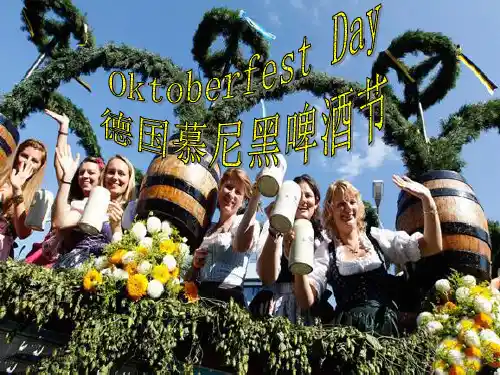
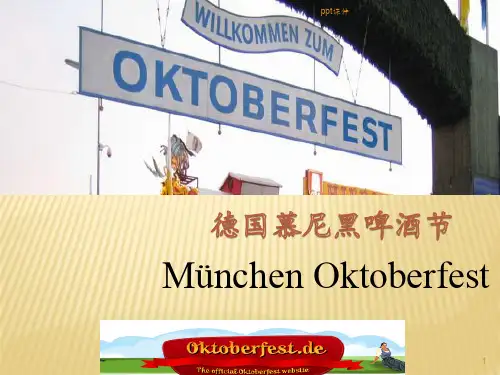
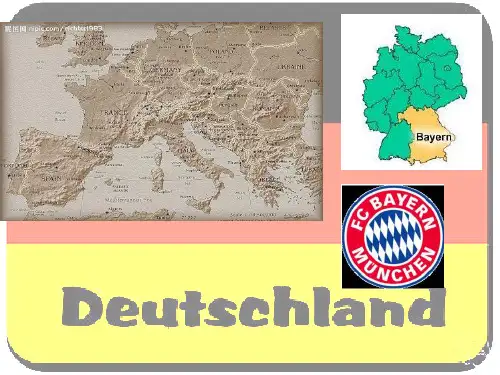
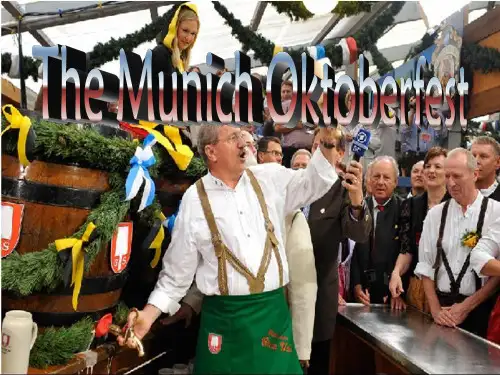
欢庆之城──慕尼黑Munich: The Festival CityHow would you like to sip a glass of cold beer while sitting in the shadow of a Chinese pagoda surrounded by English gardens in the middle of a southern German city? It may sound unlikely, but that is what millions of visitors from around the world experience in Munich in late September and early October every year. They come to celebrate Oktoberfest, probably the largest public festival in the world.The first Oktoberfest was held in 1810 to celebrate the wedding of Prince Ludwig, who later became King Ludwig I of Bavaria. The celebration featured horse races, which were repeated the following year, and the festival became an annual event. Beer stands were introduced in 1818, and these were changed to the now-famous beer tents in 1896. The drink is a major feature of the event, and this year's visitors are expected to top last year's numbers of 5 million liters of beer and 650,000 pork sausages consumed.It is fair to say that the city of Munich was founded on beer. Christian monks established a settlement there in the ninth century and began to brew a tasty mixture of malt and hops which they probably used to help " convert " local inhabitants to their religion. The tiny village where they lived eventually became known as Bei den Mon chen, meaning "where the monks are". Nowadays, St. Peter Church stands on the site where the monks founded their settlement.It was in the early years of the nineteenth century that Munich really began to grow, and many of the city's best known buildings date from this time. Despite being the modern metropolis that hosted the 1972 Olympic Games, Munich has retained a quiet charm. It is easy to forget you are in a big city as you stroll through the English Gardens, one of Europe's largest parks—complete with the Chinese Tower—and a beer garden of course.There is much more to modern Munich than beer gardens. It is Germany's favorite city, insofar as surveys show a majority of Germans would prefer to live there. Some jokingly call it the only Italian city north of the Alps, a reference to Munich's easygoing spirit that contrasts with the staid impression many foreigners haveof Germany.Despite the city's traditional image, many residents never set foot inside a beer hall or go anywhere near Oktoberfest, which is looked down on by some as a festival only for foreign tourists. These citizens see themselves as part of a thriving, modern metropolis which is the high-tech capital of Germany. Indeed, Munich plays host to a large concentration of communications and electronics firms.Munich, then, is a city of fascinating contrasts. It has terrific museums, architectural treasures, and open-air shopping as well as space-age factories and world-class markets. If you could visit only one city in Germany, the capital of Bavaria would be a worthy choice.欢庆之城──慕尼黑在德国南部城市中,坐在为英式花园环抱的中国式宝塔的荫凉下,啜饮一杯冰凉的啤酒,这样的感觉,你有多心动?听起来也许像天方夜谭,但这就是每年九、十月之交,来自世界各地的百万游客,群集慕尼黑的亲身经历。